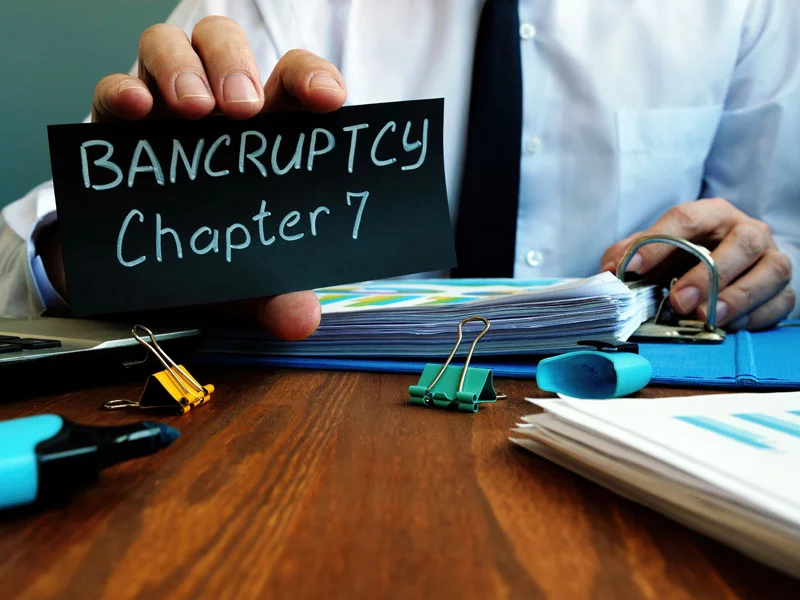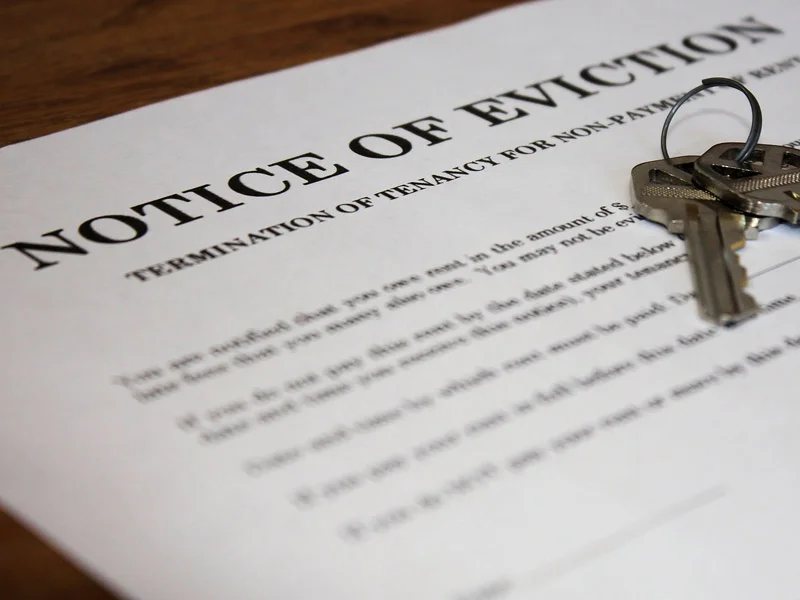free 60-minute consultation. Call us today!
Chapter 7 bankruptcy provides an option for financial relief in St. Cloud, MN. This process allows you to discharge many unsecured debts and start fresh. Filing requires legal knowledge and careful attention to eligibility rules. We help you understand how Chapter 7 works, what it protects, and how to prepare.
Chapter 7 bankruptcy discharges most unsecured debts. If you qualify, you may erase debts like credit cards, medical bills, and personal loans. The bankruptcy code sets procedures and eligibility rules for this process. Most people file for Chapter 7 to reduce the pressure of debt. We help you understand these rules and guide you through each step.
Once you file, the court orders an automatic stay. This stops creditors from calling, sending letters, or taking legal action. The stay also blocks foreclosure and wage garnishment. If you feel trapped by debt and need immediate relief, Chapter 7 can give you space to regroup. We explain what the law covers and how it protects you from creditor actions.


Filing for Chapter 7 puts a stop to most debt collection. The automatic stay halts lawsuits, foreclosures, and wage garnishment. Creditors must pause their actions while your case proceeds. This protection starts as soon as you file. It gives you room to manage your finances and make decisions without pressure.
At the end of your case, qualifying debts are discharged. Once discharged, you no longer owe them. Not every debt qualifies for discharge, though. You must still pay child support, alimony, and most student loans. We review your debts and explain what Chapter 7 will remove and what it will not.
Minnesota law allows you to keep certain assets in Chapter 7. These exemptions protect equity in your home, retirement accounts, and personal items. The goal is to give you a fresh start, not leave you without basic property. We explain which assets qualify for exemptions and how to apply them.
If you own secured property, such as a house or car, you may need to make choices. You may keep the property and continue making payments. You may surrender the property and wipe out the debt. We help you weigh the benefits and risks of each option.
Property and repossession issues often come up during bankruptcy. If you owe money on a car or home and want to keep it, you may need to reaffirm the debt. This means agreeing to keep paying even after bankruptcy. We explain what reaffirmation means and when it makes sense.
The automatic stay also pauses repossession, but only for a short time. If you fall behind after filing, the lender could potentially ask the court to lift the stay. We help you respond and explore your options. If you choose to give up the property, the bankruptcy will erase the debt. We guide you through each step.
Certain debts get priority in bankruptcy. These include child support, alimony, and tax obligations. You must pay these first. Even after your case ends, you remain responsible for them. We help you understand how these debts affect your bankruptcy case. Some debts cannot be discharged. Most student loans, fines, and recent taxes stay with you after bankruptcy. If these debts make up a large part of what you owe, we review whether Chapter 7 is the right fit. We help you build a plan that considers both dischargeable and non-dischargeable debts.
Chapter 7 clears many types of unsecured debt. Common examples include:
If you carry this type of debt, Chapter 7 may offer strong relief. We review each debt to confirm what qualifies.
Some debts that are not eligible for discharge will remain your responsibility to keep paying. These often include:
We explain the difference and help you make a decision based on your financial picture.

Outstanding, absolutely outstanding. . . My only regret is that I did not pursue representation for my case sooner. I cannot speak highly enough of this firm and their services.

Outstanding, absolutely outstanding. . . My only regret is that I did not pursue representation for my case sooner. I cannot speak highly enough of this firm and their services.

Outstanding, absolutely outstanding. . . My only regret is that I did not pursue representation for my case sooner. I cannot speak highly enough of this firm and their services.
If you rent your home, unpaid rent may trigger an eviction. Filing for bankruptcy pauses this process, but only for a short time. You still need to pay rent going forward. We help you understand how to deal with landlords during and after your case.
If you own your home and fall behind on payments, foreclosure becomes a risk. Chapter 7 may delay it but not prevent it. You may keep your home if you stay current or catch up during the process. If not, you may choose to surrender it. We review your mortgage and help you decide what works best.


If you own a small business or work for yourself, bankruptcy may involve both personal and business finances. In some cases, you may need to close your business. If your business is a sole proprietorship, the debts may be personal.
We help you sort through your obligations and understand how Chapter 7 affects your business. Proving income as a self-employed filer requires more records. The means test still applies, but your income may vary month to month. We help you document your income clearly and explain your expenses to the court.
Filing for Chapter 7 involves several steps. First, we gather details about your income, assets, debts, and expenses. We complete the forms and submit them to the court. Once filed, the automatic stay begins.
A trustee is appointed to oversee your case. The trustee reviews your paperwork, asks questions at a short hearing, and may sell any non-exempt property. Most cases do not involve asset sales. If your property falls under exemptions, you keep it.
After the hearing and a short waiting period, the court grants a discharge. This removes your obligation to pay qualifying debts. The process usually takes about three to four months. We guide you from start to finish.
Chapter 7 and Chapter 13 provide different types of relief. Chapter 7 wipes out debt quickly but may involve property loss. Chapter 13 sets up a payment plan over three to five years. You may keep more property under Chapter 13.
If you have steady income and want to catch up on mortgage or car payments, Chapter 13 may work better. If you cannot afford payments and have few assets, Chapter 7 may give you faster relief. We compare both options and help you choose the right one for your needs.
A free consultation gives you a chance to review your finances with a bankruptcy lawyer. We listen, answer your questions, and explain what to expect. This meeting helps you decide if Chapter 7 fits your goals.
We look at your income, debts, and property to determine your eligibility. We walk through the filing process and explain how long it takes. If you qualify, we help you take the next steps.
You do not have to sort this out alone. We guide you through each part of your case and help you understand your rights and options. Contact Kain + Henehan by calling (612) 438-8006 or filling out the online form to get help with managing a Chapter 7 bankruptcy.